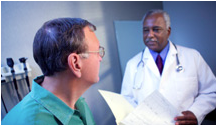The Takeaway
Self-evaluation can be the first step to getting diagnosed with obstructive sleep apnea.
The STOP-BANG survey below is a self-evaluation you can take to assess the chances of having sleep apnea. However, to get a proper diagnosis, you must see a healthcare practitioner—either a primary care physician/clinician or a sleep specialist. He or she will obtain additional information and determine whether there are alternative explanations for your symptoms. Your doctor will decide whether further evaluation is necessary. Sometimes excessive daytime sleepiness is simply related to insufficient sleep. If it seems likely that you have OSA, then additional diagnostic testing will be required.
These four yes-or-no "STOP" questions can help you determine your risk for sleep apnea:
- S: Do you snore loudly (louder than talking or loud enough to be heard through closed doors)?
- T: Do you often feel tired, fatigued, or sleepy during the day?
- O: Has anyone observed you not breathing during sleep?
- P: Do you have or have you been treated for high blood pressure?
You have a high risk of sleep apnea if you answered "yes" to two or more of these questions. You are strongly encouraged to discuss these results with your medical provider. To find a sleep center in your area, please visit Find a Sleep Center.
The questionnaire has an even higher predictive value when you answer four more questions:
- B: Is your Body Mass Index more than 35 kg/m2?
- A: Is your age more than 50 years old?
- N: Is your neck circumference greater than 40 cm?
- G: Is your gender male?
You have a high risk of sleep apnea if you answered "yes" to three or more of the eight STOP-BANG questions. You are strongly encouraged to discuss these results with your medical provider. To find a sleep center in your area, please visit Find a Sleep Center.
Use of Apps to Detect Sleep Apnea
With the growing use of mobile devices such as smartphones and tablets, increasing numbers of apps are available that claim to assess sleep duration and/or sleep quality. Some assert that they are able to detect the presence of OSA. Unfortunately, most have not been carefully validated against an actual sleep study and have not been approved by a regulatory body such as the U.S. Food and Drug Administration. Therefore, if an app indicates that you have sleep apnea, you need to discuss the results with a medical provider who may order a sleep study to confirm the diagnosis. Conversely, if you have symptoms of sleep apnea, but the app does not detect it, you also need to discuss the results with your medical provider. The lack of OSA as determined by an app should not be considered as an absence of OSA especially if symptoms are present.
Dr. Lawrence Epstein discusses what to expect from a sleep evaluation and sleep study.
MyApnea.org, a patient-centered research resource, has been created to engage and inform at-risk and existing sleep apnea patients. Visit MyApnea.org to read more about this effort and to contribute to important research efforts that aim to better the lives of patients living with sleep apnea.